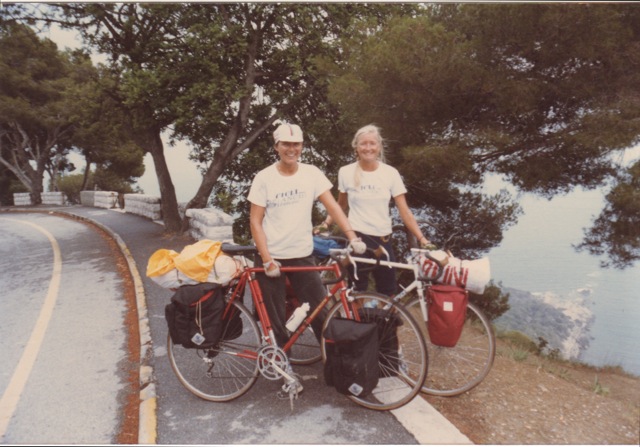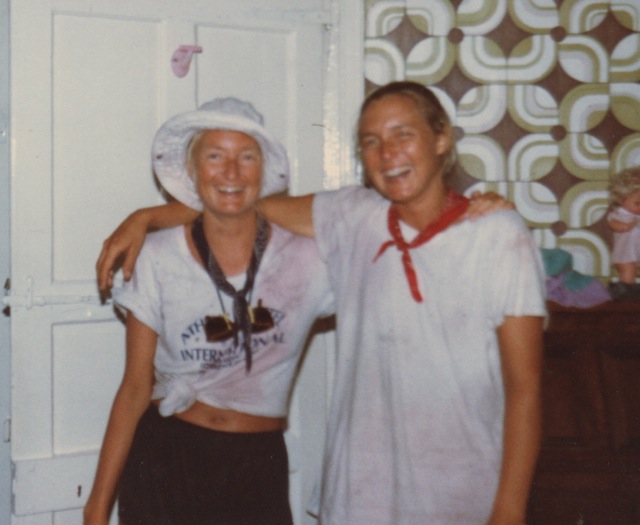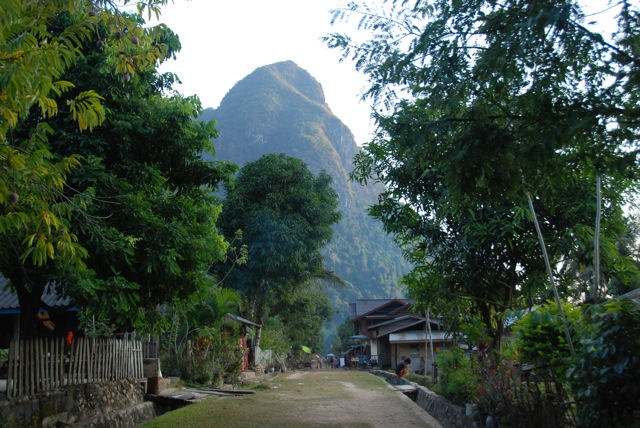Before Computers (& Cell Phones)
In ancient times, (the 1980’s) travel meant being disconnected from everything you knew. You had no choice but to “Be Here Now”. Keeping track of your kids meant parents had to settle for the occasional postcard from their 20-something backpackers, or in our case, cyclists. When the only way for travelers to get word from home, was to retrieve snail mail at American Express offices, or make a very expensive phone call.
I have a vivid memory of waiting in the Paris post office for my name to be called. That’s how Eurailers phoned home in 1982. You went to the post office, wrote your name, and the number you wanted to call, on a scrap of paper, waited in line, handed it over to an operator, then sat and waited some more, wondering if your mom, dad, or boyfriend would be home to accept the collect call charges. If your timing was good, you’d hear announced: “Julie Conover, cabine trios”. In the small phone booth, a wooden cabin, you’d pick up the receiver and hopefully hear the correct voice. Then, anxious over the per-minute charges ticking away, you’d hurriedly give an account of your recent adventures, ask for money to be wired from your savings account to the Western Union office, or find out that your boyfriend wasn’t necessarily waiting for you anymore. (Oh well, c’est la vie, he was a world away, and you had more exciting experiences ahead)
Getting mail was a real crap shoot, but amazingly worked pretty well. You had to tell your friends and family approximately when you would be in a certain city, then they had to mail their letter in plenty of time, and hope that it would end up in the right pile, at the right AmEx office, where you’d show up to cash a travelers check. It was always so exciting when you gave them your name and there was actually something for you. I can still picture the scruffy-looking, weary travelers sitting on the AmEx steps, the curb, a park bench; smiling or crying, over a letter from home.
GPS? Ah, negative. We rode bicycles for 6 months using a AAA road map showing the whole of Europe, and a dissected “Lets Go” guide – we would tear out the parts we had no use for, carrying only the currently relevant sections. When we needed directions, we asked locals. Getting lost was part of the fun. Ya think? Actually, no, getting lost on bikes is typically not fun.
Fast forward 30 years… I miss that kind of travel. Being so disconnected from home, friends, family, our native tongue, we were much more connected to our surroundings. I guess that is why I gravitate towards off-the-beaten-path places, I am subconsciously trying to create that feeling again. I actually hate having a TV a hotel room, and see clearly how the ubiquitous wifi of Southeast Asia, is more of a curse than a blessing. My favorite place in Laos this trip was a small village, only accessible by boat, with no electricity. I hung out for hours at candle lit restaurants chatting with travelers, star gazed, walked to neighboring villages, read, and, downloaded pictures to my laptop.



Yes, yes! I was in that Paris post office line in 1980. And my boyfriend did break up with me while I was gone. But since we didn’t chat while I was traveling, it was my welcome home news. I guess that kind of travel helped us be more self reliant–had to figure it out and make a decision.
Very cute topic to address! We should never forget how “hard” we had it – or was it really that difficult? I learned how to read maps quite well when out on road trips with my parents. I followed along on the AAA “Trip-Tik” and it not only kept me entertained, but educated me. Many kids these days have no idea how to read a map. Checking in with the parental units was required whenever we got to our destination. They could always tell if we were in trouble or possibly not telling the truth completely by the tone of our voice. Not so obvious by today’s texting. The list goes on and on – but we learned valuable life-skills as a result of our experiences. And what great stories to tell those next generations!! Thank you Julie for your wonderful look into the B.C. era.